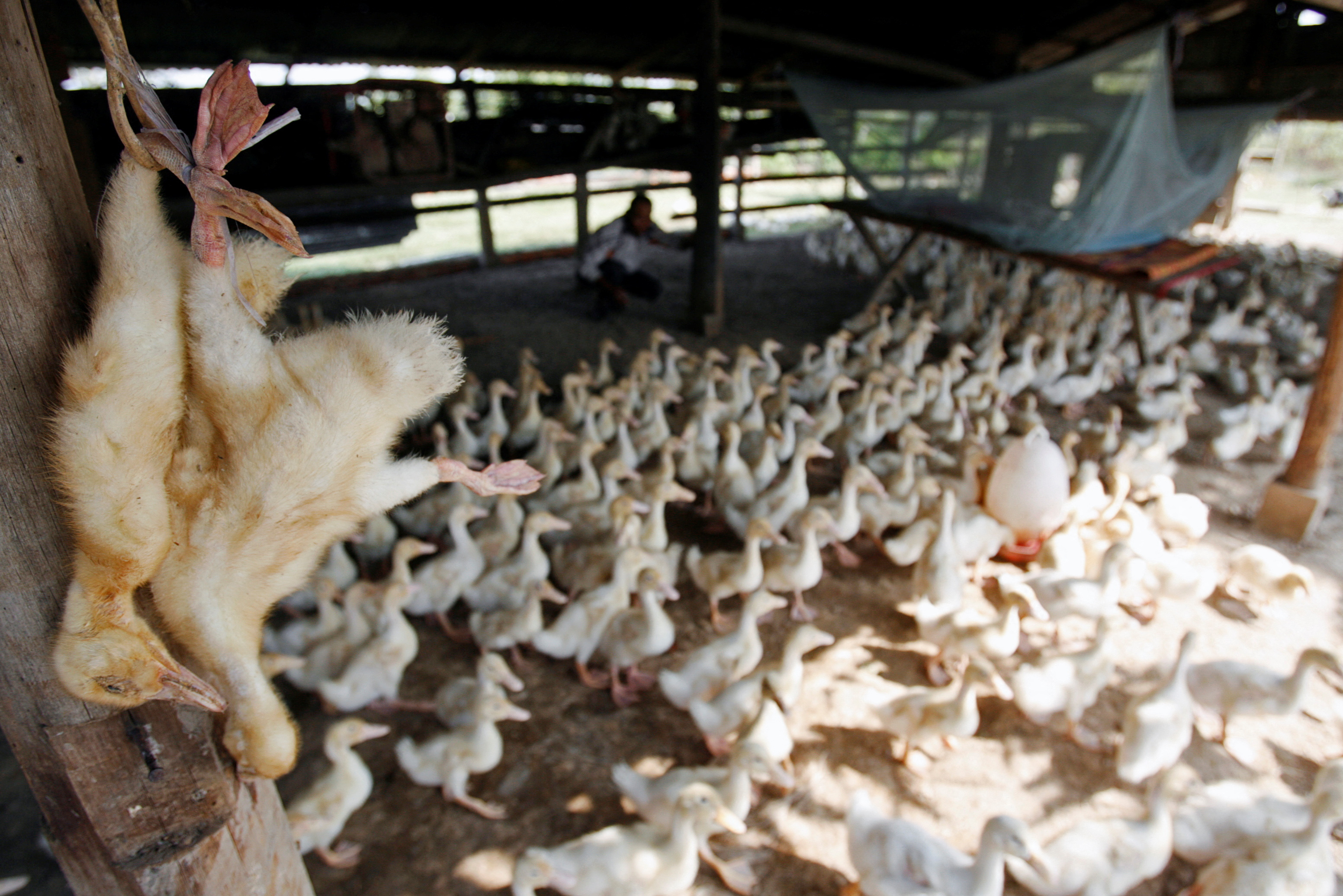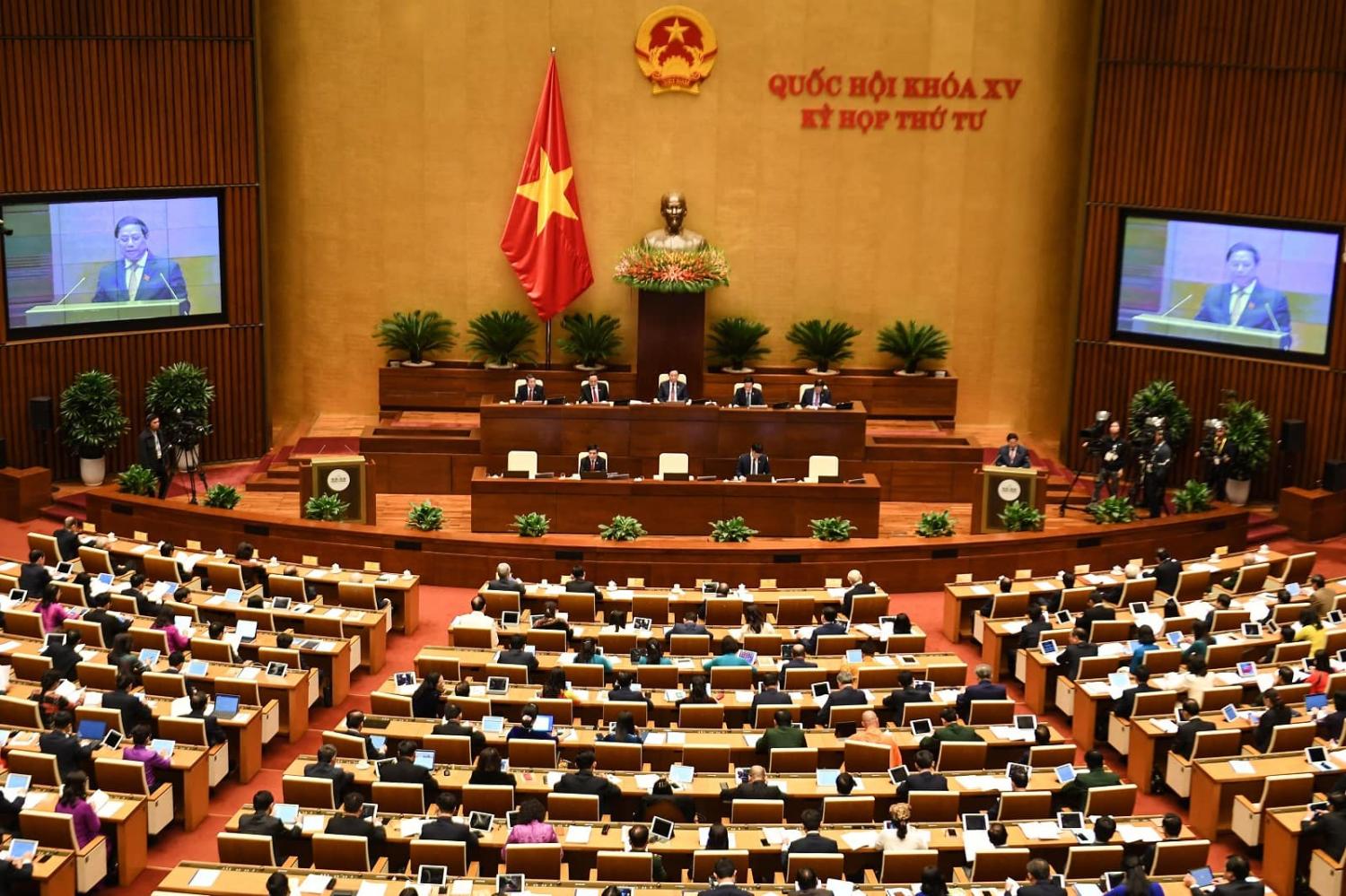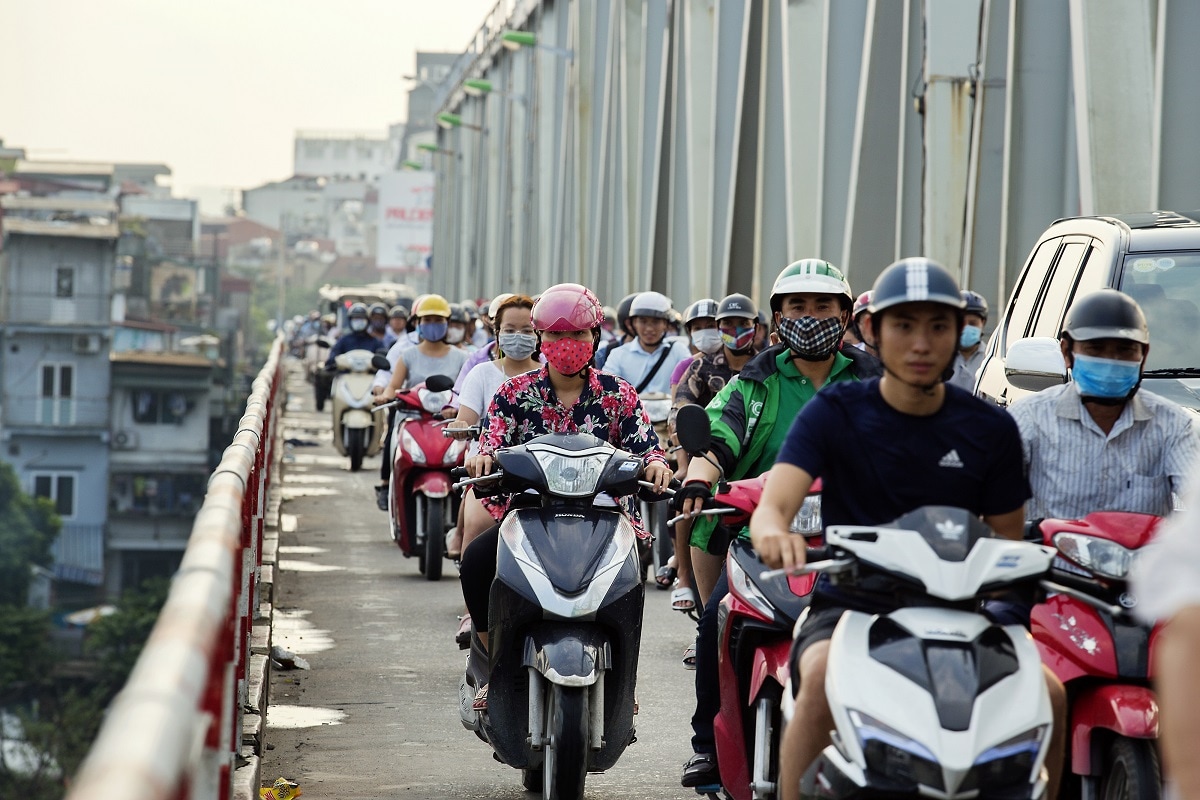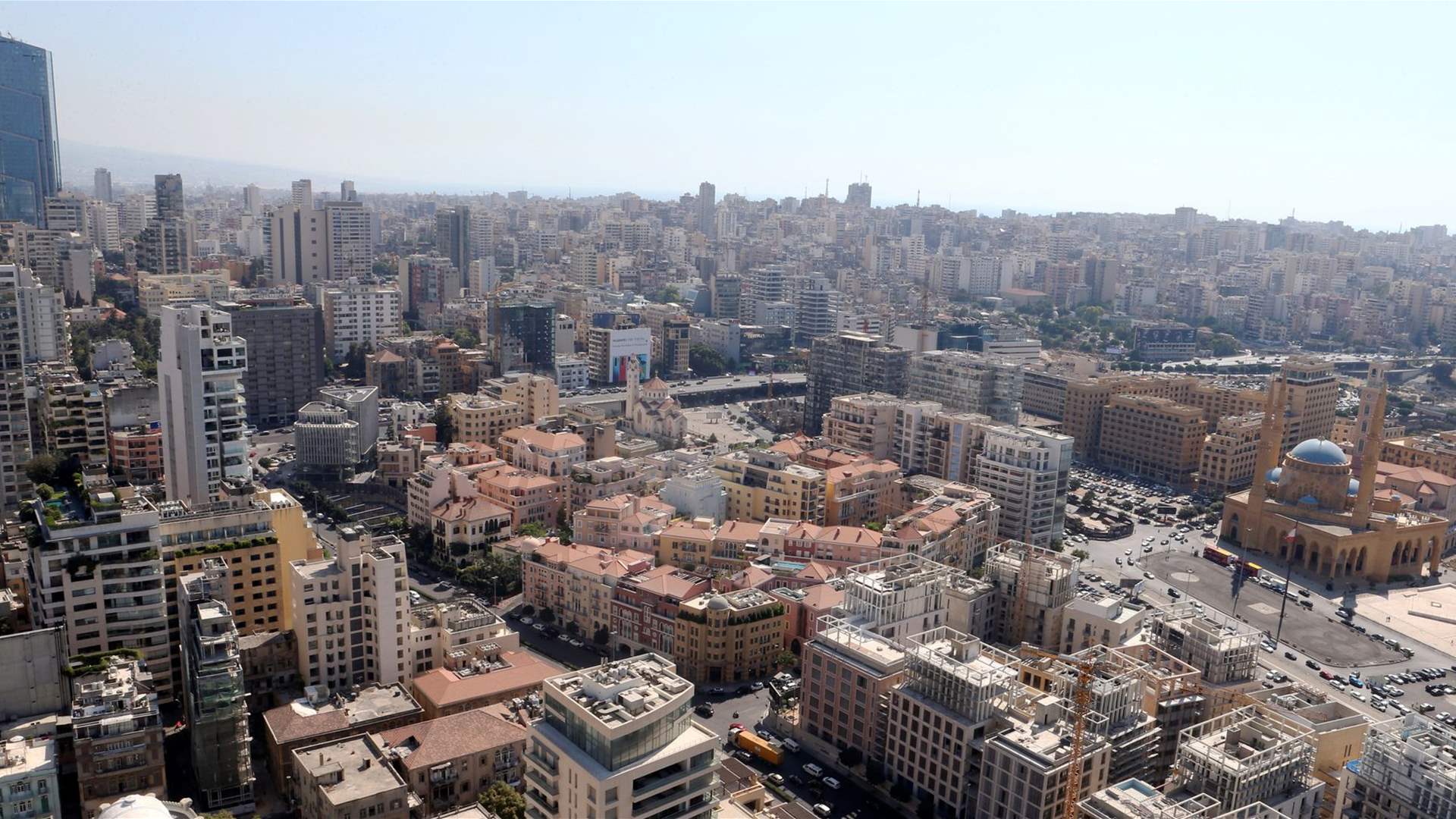February 26, 2023
Mohamed Olad Hassan

Somali American demonstrators gather during a rally outside the State Department in Washington, Feb. 24, 2023, to call attention to the clashes in a disputed town in Somalia’s breakaway Somaliland region.
WASHINGTON —
Somali-American demonstrators from across the United States have called for a cessation of hostility after three weeks of clashes in a disputed town in Somalia’s breakaway Somaliland region left over 100 people dead and more than 500 wounded.
About 200 Somali Americans from across the United States gathered outside the U.S. State Department Friday to call attention to the violence.
Local militias are fighting to pull three regions – Sool, Sanaag and Cayn -- away from Somaliland in order to rejoin Somalia. Cease-fire calls have so far been ignored.
Some of the demonstrators carrying the Somali flag, banners, and placards were seen chanting anti-war slogans in support of the victims of the fighting in Las Anod, the capital of Sool.
"Down, down with Muse Bihi," protesters chanted, referring to Somaliland President Muse Bihi Abdi.
They demanded immediate, and unconditional cessation of the fighting in Las Anod.
"It is forbidden to kill the innocents, the children, elders, or women. Somaliland cannot rule by force. We will not allow Muse Bihi to kill innocent people," said one of the protesters, Abdirashid Mohamed Farah.
Abdirahman Mohamed Abdi, Somalia’s former minister of fisheries and marine resources was among the demonstrators.
He said the people in Las Anod are suffering simply because they want to withdraw from Somaliland and be governed by Somalia to the south.
“We are from 15 states in the U.S and Canada. We are here to tell Somalis and the United States government that we want to express our feelings and show solidarity with the innocent people of Las Anod,” Abdi said.
“We call for the United States to pressure Somaliland to cease the hostility,” he added.
“Our people in Las Anod are dying for the sake of the unity of Somalia, and we are here to show solidarity with them, and thank to all those who supported us and sympathized us in this cause,” said another demonstrator, Fawzia Haji Dirir.
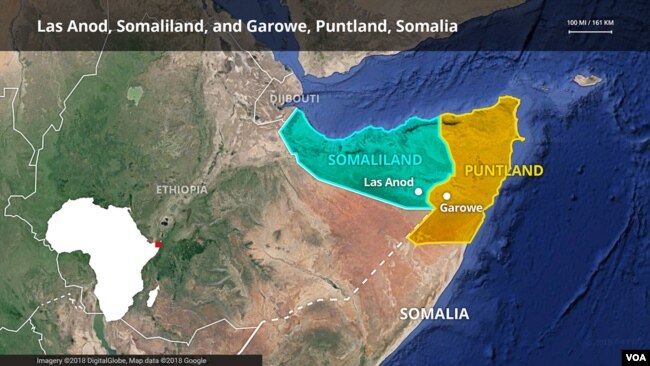
The demonstrators also marched toward Djibouti's Washington embassy, accusing that nation of supporting Somaliland in the fight, but Djiboutian Economy and Finance Minister Ilyas Moussa Dawaleh Saturday denied his country’s involvement in the conflict to VOA.
“The accusers have no evidence to prove, and the only Djibouti guns in Somalia are those in the hands of our Hill Walal soldiers,” Dawaleh said, referring to Djibouti soldiers in Somalia who are part of the African Union peacekeeping forces.
The Washington rally came amid ongoing international efforts to end the fighting.
The U.N. and other diplomatic missions in Somalia, including the U.S. Embassy in Mogadishu, have called on both sides to end to the hostility and negotiate a resolution of their differences, as has Somalia’s government.
“On February 23, a delegation from the U.S. Embassy in Mogadishu led by Chargé d’Affaires Tim Trenkle visited Hargeisa [Somaliland’s capital] to meet with Somaliland government officials, civil society representatives, and youth leaders to discuss security, prosperity, and democracy in the region,” the U.S Embassy in Mogadishu said in a February 23 statement.
“The delegation was received by Somaliland President Muse Bihi Abdi. The Chargé d’Affaires reiterated the United States and international community’s call for an immediate, unconditional ceasefire in Las Anod and condemned the tragic loss of life and violence,” the statement added.
A Standoff
Somaliland President Muse Bihi announced last week that he would be dispatching clan elders to seek an end to the violence. However, clan elders in the battle-battered town demanded that Somaliland pull out its troops as a precondition for dialogue.
Despite local calls for peace and international efforts, shelling and gunfire continued in Las Anod Saturday, killing at least 20 people, residents and hospital sources told VOA.
Spokesmen for both sides, who spoke to VOA Somali have traded accusations.
Spokesman for the traditional elders in Las Anod Garaad Abdikarim Ali said the Somaliland army launched an attack and bombarded the city with artillery Saturday.
WASHINGTON —
Somali-American demonstrators from across the United States have called for a cessation of hostility after three weeks of clashes in a disputed town in Somalia’s breakaway Somaliland region left over 100 people dead and more than 500 wounded.
About 200 Somali Americans from across the United States gathered outside the U.S. State Department Friday to call attention to the violence.
Local militias are fighting to pull three regions – Sool, Sanaag and Cayn -- away from Somaliland in order to rejoin Somalia. Cease-fire calls have so far been ignored.
Some of the demonstrators carrying the Somali flag, banners, and placards were seen chanting anti-war slogans in support of the victims of the fighting in Las Anod, the capital of Sool.
"Down, down with Muse Bihi," protesters chanted, referring to Somaliland President Muse Bihi Abdi.
They demanded immediate, and unconditional cessation of the fighting in Las Anod.
"It is forbidden to kill the innocents, the children, elders, or women. Somaliland cannot rule by force. We will not allow Muse Bihi to kill innocent people," said one of the protesters, Abdirashid Mohamed Farah.
Abdirahman Mohamed Abdi, Somalia’s former minister of fisheries and marine resources was among the demonstrators.
He said the people in Las Anod are suffering simply because they want to withdraw from Somaliland and be governed by Somalia to the south.
“We are from 15 states in the U.S and Canada. We are here to tell Somalis and the United States government that we want to express our feelings and show solidarity with the innocent people of Las Anod,” Abdi said.
“We call for the United States to pressure Somaliland to cease the hostility,” he added.
“Our people in Las Anod are dying for the sake of the unity of Somalia, and we are here to show solidarity with them, and thank to all those who supported us and sympathized us in this cause,” said another demonstrator, Fawzia Haji Dirir.

The demonstrators also marched toward Djibouti's Washington embassy, accusing that nation of supporting Somaliland in the fight, but Djiboutian Economy and Finance Minister Ilyas Moussa Dawaleh Saturday denied his country’s involvement in the conflict to VOA.
“The accusers have no evidence to prove, and the only Djibouti guns in Somalia are those in the hands of our Hill Walal soldiers,” Dawaleh said, referring to Djibouti soldiers in Somalia who are part of the African Union peacekeeping forces.
The Washington rally came amid ongoing international efforts to end the fighting.
The U.N. and other diplomatic missions in Somalia, including the U.S. Embassy in Mogadishu, have called on both sides to end to the hostility and negotiate a resolution of their differences, as has Somalia’s government.
“On February 23, a delegation from the U.S. Embassy in Mogadishu led by Chargé d’Affaires Tim Trenkle visited Hargeisa [Somaliland’s capital] to meet with Somaliland government officials, civil society representatives, and youth leaders to discuss security, prosperity, and democracy in the region,” the U.S Embassy in Mogadishu said in a February 23 statement.
“The delegation was received by Somaliland President Muse Bihi Abdi. The Chargé d’Affaires reiterated the United States and international community’s call for an immediate, unconditional ceasefire in Las Anod and condemned the tragic loss of life and violence,” the statement added.
A Standoff
Somaliland President Muse Bihi announced last week that he would be dispatching clan elders to seek an end to the violence. However, clan elders in the battle-battered town demanded that Somaliland pull out its troops as a precondition for dialogue.
Despite local calls for peace and international efforts, shelling and gunfire continued in Las Anod Saturday, killing at least 20 people, residents and hospital sources told VOA.
Spokesmen for both sides, who spoke to VOA Somali have traded accusations.
Spokesman for the traditional elders in Las Anod Garaad Abdikarim Ali said the Somaliland army launched an attack and bombarded the city with artillery Saturday.
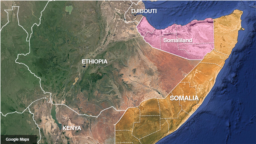
SEE ALSO:
Dozens Killed in Eastern Somaliland Clashes
In response, Somaliland Army spokesman Abdi Dhere said local militias, supported by al-Shabab militants have launched an attack on Somaliland army base.
Doctors and hospitals in Las Anod said this week that 105 people had been killed and 602 injured in the three weeks of fighting.
The International Committee of the Red Cross said Wednesday the clashes in Las Anod had left at least 150 people dead and over 600 others wounded since February 6.
A VOA reporter in the town said the fighting has escalated this week, as both sides dug trenches to defend their positions, while mortar and tank shells pounded throughout the city.
Somaliland considers the territory as a part of its breakaway region and that giving up could jeopardize its efforts for international recognition of its separation from Mogadishu.














